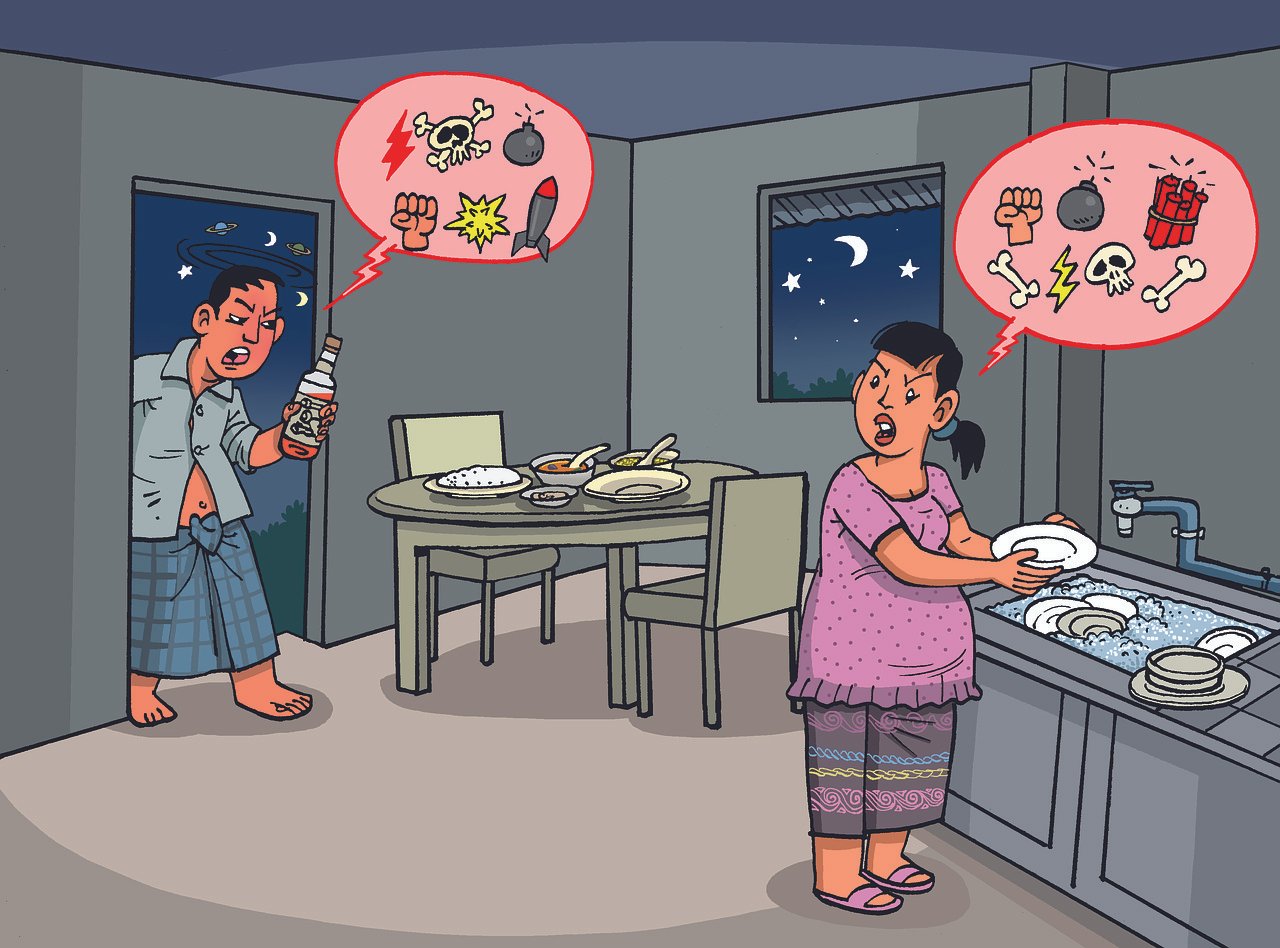12 Reasons why incidents of Gender-based Violence in Communities Continue in South Africa: Gender-based violence (GBV) is defined as “the general term used to capture violence that occurs as a result of the normative role expectations associated with each gender, along with the unequal power relationships between genders, within the context of a specific society.” (Safer Space)
The cycle of violence
When a relationship becomes violent, the first attack may seem like an isolated event. But when the violence continues, it usually follows this pattern:

- Tension builds: anger, arguing, blaming, verbal abuse
- Violence: hitting, slapping, kicking, choking, use of objects or weapons, sexual abuse, verbal threats and abuse
- Calm period: The man may deny the violence, say he is sorry, or promise it will never happen again.
Source: Hesperian.org
12 Reasons why incidents of Gender-based Violence in Communities Continue
Below are more than 12 reasons on why incidents of Gender-based violence in communities continue:
Physical factors:
- Lack of physical security owing to break-down of law and order, presence of armed forces/groups, collapse of law enforcement, justice institutions and family, social or community structures. Women and girls are particularly vulnerable when leaving their communities in search of work, food, water and/or firewood.
- Poverty, lack of education and livelihood opportunities, and inadequate access to shelter, food, water, fuel, and income generation can increase exposure to GBV, including forced prostitution or survival sex.
Social /cultural /political factors:
- Discriminatory social, cultural or religious laws, norms and practices that marginalize women and girls and fail to respect their rights.
- Collapse of family, social and communal structures and disrupted roles within the family often expose women and girls to risk and limit coping mechanisms and avenues for protection and redress.
- Lack of confidence and/or trust in social or public institutions, including law enforcement and justice institutions that discourage victims/survivors from seeking redress.
Judicial barriers:
- Lack of access to justice institutions and mechanisms, resulting in culture of impunity for violence and abuse (see Part V.10).
- Lack of adequate and affordable legal advice and representation.
- Lack of adequate victim/survivor and witness protection mechanisms
Individual barriers:
- Threat or fear of stigma, isolation and social exclusion.
- Exposure to further violence at the hands of the perpetrator, the community or the authorities, including arrest, detention, ill-treatment and punishment.
- Lack of information about human rights and on how and where to seek remedies.
Humanitarian programming obstacles:
- Failure to address or prioritize GBV in assessments, strategy development, planning and programming because of a lack of information or understanding about the extent or nature of GBV.
- Lack of gender-sensitive design of programmes, services and facilities, including inadequate registration practices and distribution of food and non-food items.
- Sexual exploitation and abuse by peacekeepers, human rights and humanitarian workers.
- Other challenges including weak links with other assistance and protection programmes, lack of confidentiality, confusing reporting and referral mechanisms, and GBV committees that are isolated, under-resourced and weak, and lack support from the wider community.
Also Read:
- 12 Reasons why incidents of Gender-based Violence in Communities Continue
- Why South Africans need to help those Affected by Gender-based Violence
- How gender inequality in relationships could contribute to sexual abuse
- How gender inequality in relationships could contribute to teenage pregnancy
- Breaking the Cycle: How Society can Contribute to the Ongoing Displays of Gender Stereotypes in SA Communities
- The Causes of gender-based Violence During Lockdown
- The Negative Impact of Gender Differences in Sports Participation
- Strategies that Girls could Implement to Challenge Gender Stereotypes within the school
- 20 Examples of Traditional Gender Roles
- Why Both Men and Women could become Victims of Gender-based Violence
- What can Victims of Gender-based Violence do to Ensure Safety
- Reasons why Discrimination Against Gender is Illegal in the South African Constitution
- How Can NGOs Take Concrete Steps to Eradicate Gender-Based Violence?
- At what Age do Children Make Gender-Stereotyped Game and Toy Choices?
- Reasons Why Survivors of Gender-based Violence may Feel Hesitant to Report Human Rights Violation
- Strategies that Responsible Citizens may use to Help Victims of Gender-based Violence
- Feminist Legal Theory: is it Wrong to Treat Men and Women Differently on the Basis of Gender
- 10 Causes of Gender-Based Violence in South Africa with Examples
- A Critical Discussion on Gender-Based Violence as a Human Rights Violation in South Africa: Acts and Examples
- The Devastating Effects of Gender-Based Violence in South Africa: Real-Life Examples and the Way Forward
Sources:
- United Nations Population Fund (UNFPA) www.unfpa.org
- United Nations High Commissioner for Refugees (UNHCR) www.unhcr.org
- UNIFEM Portal on Women, Peace and Security www.womenwarpeace.org
- Reproductive Health Response in Crisis Consortium (RHRCC) www.rhrc.org
- World Health Organization (WHO)
- International Committee of the Red Cross (ICRC) www.icrc.org/eng/women
- Women’s International League for Peace and Freedom (WILPF)
- International Rescue Committee (IRC) www.irc.org

